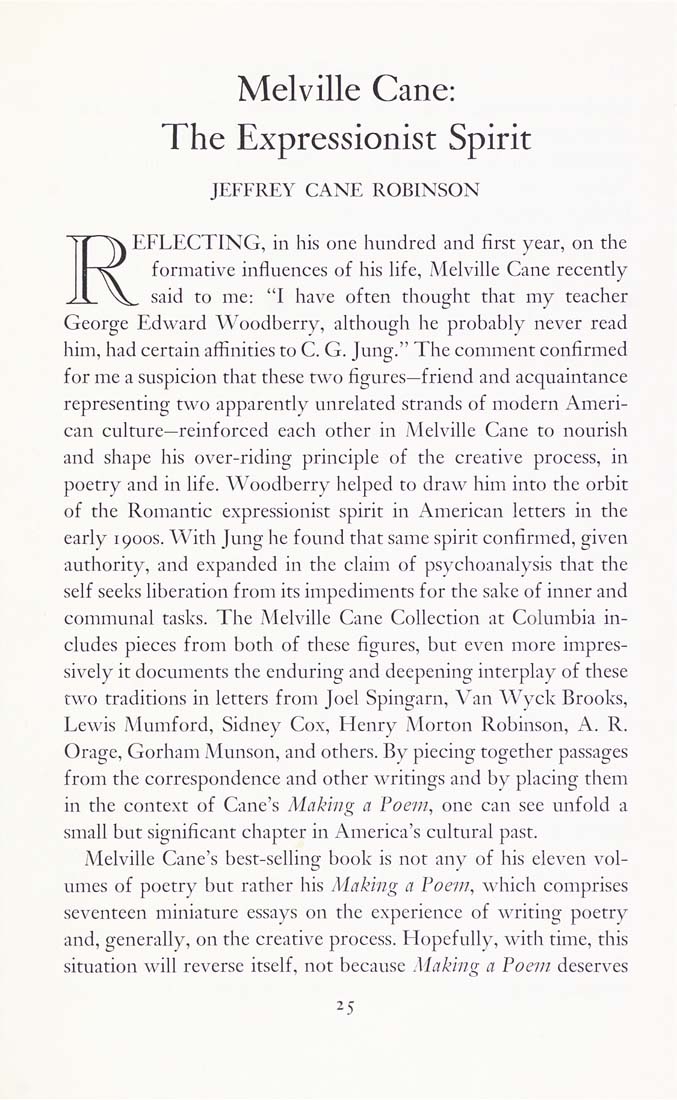Columbia Library columns (v.30(1980Nov-1981May))
(New York : Friends of the Columbia Libraries. )
|
||
|
|
|
|
| v.30,no.2(1981:Feb): Page 25 |

Melville Cane: The Expressionist Spirit JEFFREY CANE ROBINSON REFLECTING, in his one hundred and first year, on the formative influences of his life, Melville Cane recently said to me: "I have often thought that my teacher George Edward Woodberry, although he probably never read him, had certain affinities to C. G. Jung." The comment confirmed for me a suspicion that these two figures—friend and acquaintance representing two apparenrly unrelated strands of modern Ameri¬ can culture—reinforced each other in Meh'ille Cane to nourish and shape his over-riding principle of the creative process, in poetry and in life. Woodberry helped to draw him into the orbit of the Romantic expressionist spirit in American letters in the early 1900s. With Jung he found that same spirit confirmed, given authority, and expanded in the claim of ps\'choanalysis that the self seeks liberation from its impediments for the sake of inner and communal tasks. The Melville Cane Collection at Columbia in¬ cludes pieces from both of these figures, but even more impres¬ sively it documents the enduring and deepening interplay of these two traditions in lerters from Joel Spingarn, Van Wyck Brooks, Lewis Mumford, Sidney Cox, Henry Morton Robinson, A. R. Orage, Gorham Munson, and others. By piecing together passages from the correspondence and other writings and by placing them in the context of Cane's Making a Poem, one can see unfold a small but significant chapter in America's cultural past. Melville Cane's best-selling book is not any of his eleven vol¬ umes of poetry but rather his Making a Poem, which comprises seventeen miniature essays on the experience of writing poerry and, generally, on the creative process. Hopefully, with time, this situation will reverse itself, not because Making a Poem deserves 25 |
| v.30,no.2(1981:Feb): Page 25 |







